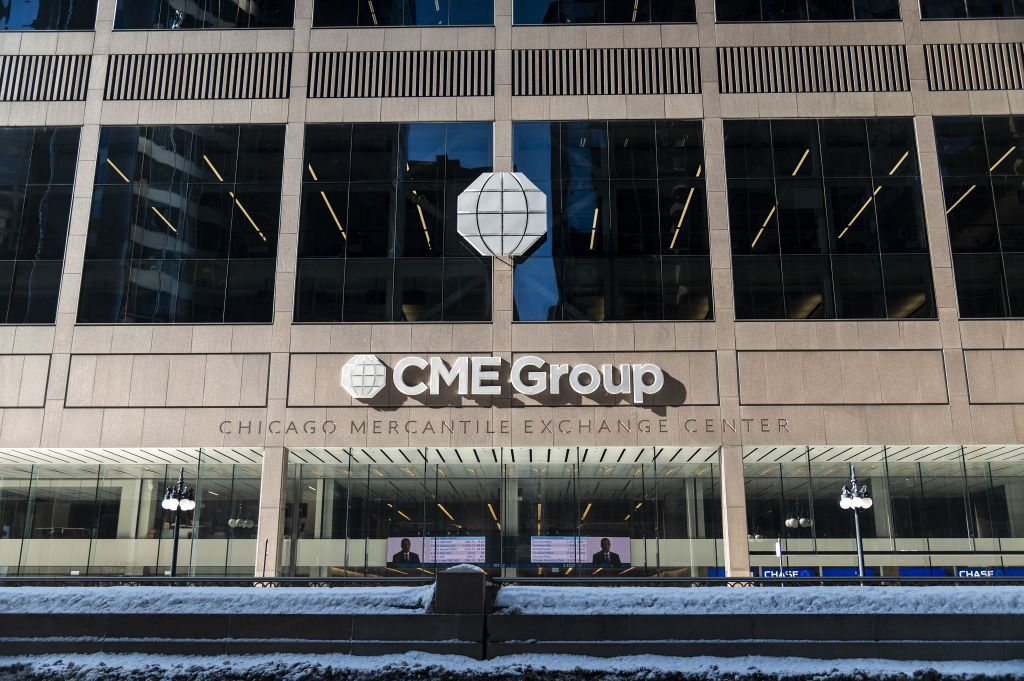Why you should pull the plug on this hydrogen fuel-cell stock
The maker of hydrogen fuel cell-powered electric vehicles is absurdly pricey. Matthew Partridge picks the best way to play it.


Get the latest financial news, insights and expert analysis from our award-winning MoneyWeek team, to help you understand what really matters when it comes to your finances.
You are now subscribed
Your newsletter sign-up was successful
Want to add more newsletters?
One of the biggest investment themes at present is renewable energy. With governments around the world, including America’s, committed to lowering carbon emissions drastically, they are spending billions of dollars creating incentives to use “clean energy”. Meanwhile, investors from pension funds to banks are also coming under pressure to invest “ethically” by avoiding shares in fossil-fuel companies. However, just because a type of energy is “green”, it doesn’t necessarily mean that it is efficient or economical, or that firms involved in producing it are always a good investment.
Consider hydrogen power, for example. For the last decade there has been great interest in vehicles powered by hydrogen fuel cells. These combine hydrogen stored in a tank with oxygen from the air to produce electricity. However, the results have been disappointing.
This is partly because extracting the hydrogen (mainly from natural gas) and then compressing it so that it can be used in engines is a complicated and costly process. However, a bigger problem is that advances in battery technology mean that battery-powered electric vehicles have overtaken their hydrogen counterparts as the preferred choice for those who want to save the planet and keep costs to a minimum.
Try 6 free issues of MoneyWeek today
Get unparalleled financial insight, analysis and expert opinion you can profit from.

Sign up to Money Morning
Don't miss the latest investment and personal finances news, market analysis, plus money-saving tips with our free twice-daily newsletter
Don't miss the latest investment and personal finances news, market analysis, plus money-saving tips with our free twice-daily newsletter
Desperate for custom
One firm finding this out the hard way is Plug Power (Nasdaq: PLUG), which manufactures and designs hydrogen-powered industrial equipment. It has had very little success in persuading companies to buy into its system. Indeed, while Amazon and Walmart have agreed to buy a handful of hydrogen-powered forklift trucks in the past few years, Plug Power had to throw in cheap share options equal to 15% of the company to sweeten the deals, diluting existing shareholders. The deals also involve servicing and refuelling agreements. The upshot? The terms of the contract with Amazon and Walmart are so bad that the group is actually losing money, according to Sahm Adrangi of Kerrisdale Capital.
Plug Power’s supporters like to point to the fact that the company agreed two joint ventures with French carmaker Renault and South Korean Power company SK Group earlier this year, which caused the share price to double in January. Yet given that previous attempts to boost hydrogen power in South Korea have largely been a flop, especially as there is little in the way of infrastructure, such as refuelling stations, investors shouldn’t get too excited. The deal with Renault is also very vague and doesn’t commit the French company to manufacturing any vehicles.
After the surge in investors’ enthusiasm a few weeks ago, Plug Power’s share price has started to fall back and it is now down by nearly half from its peak. Nonetheless, given that its shares are still trading at 25 time 2022 revenue, they could go down a lot further. I suggest that you short them at the current price of $40.75 at £50 per $1. Cover your position if they rise above $60.75, which would give you a potential downside of £1,000.
Trading techniques: no Budget bounce
Budget Day is a major event with the chancellor of the exchequer outlining plans for spending and taxation. The market reaction to Rishi Sunak’s latest budget has been muted, with the FTSE All-Share effectively unchanged over the past week. But this is not always the case. The index fell by 4.7% in the week following the 2001 budget and by 4.1% a week after George Osborne delivered his first budget in June 2010. Conversely, the FTSE gained 4.5% in the seven days after the 2015 budget, while it increased by 2.8% in 2011.
Overall, in the 22 budgets since 2000, the market has fallen by an average of 0.6% in the week following the speech. While this would suggest that Budgets are generally bad for share prices, the problem is that this data is heavily skewed by the 13.1% fall in the week after last year’s Budget, which was clearly prompted more by news of the global pandemic than anything Sunak had to say. If you exclude last year, the market has neither increased nor decreased on average in the aftermath of recent Budgets, suggesting that their ability to move the markets is limited.
The lack of a consistent impact on the stockmarket should come as no surprise. The contents of Budgets used to be shrouded in secrecy. Hugh Dalton was forced to resign in 1947 after he tipped off a journalist about a tax rise on tea. But today proposed measures are openly discussed months in advance. This means that by the time the chancellor delivers the actual budget the market has had plenty of time to digest the implications of any measure that could affect share prices.
How my tips have fared
The past fortnight has been kind to my four long tips, with three of them appreciating. Media group ITV went up from 114p to 119p, while cruise-ship company Norwegian Cruise Lines climbed from $28.56 to $29.31. Housebuilder DR Horton advanced from $78 to $80.51.
The only fly in the ointment was transport group National Express, which declined from 316p to 301p. Overall, my long tips are making a total net profit of £4,368 (although this is down from £5,800 as a result of the closure of the position in Mitchells & Butlers in the previous column).
Four out of five of my short tips also moved in the right direction. Online insurance-broker eHealth fell from $58.95 to $51.03. Electric-lorry maker Nikola fell from $20.92 to $14.62 and online grocer Ocado from 2,296p to 2,062p. Cloud-computing firm Snowflake slipped from $270 to $213.
However, video-games retailer GameStop has bounced back again, with its price quadrupling from $46 to $195 – although you would have covered your short position at $75, which would have limited your losses to £1,000 (otherwise they would have been £5,800). Counting GameStop, the net profits on the short tips are £2,113.
The forced closure of GameStop leaves me with four long tips (ITV, Norwegian Cruise Lines, DR Horton and National Express) and five shorts (eHealth, Nikola, Ocado, Snowflake and Plug Power).
Given that they are all making a profit at the moment, I am not inclined to close any other positions, although I will increase the stop-loss on Norwegian Cruise lines to $20 (from $18). I am also going to cut the stop-losses on long-running short tips eHealth and Nikola to $75 and $25 respectively (down from $85 and $27).
Get the latest financial news, insights and expert analysis from our award-winning MoneyWeek team, to help you understand what really matters when it comes to your finances.

-
 Do you face ‘double whammy’ inheritance tax blow? How to lessen the impact
Do you face ‘double whammy’ inheritance tax blow? How to lessen the impactFrozen tax thresholds and pensions falling within the scope of inheritance tax will drag thousands more estates into losing their residence nil-rate band, analysis suggests
-
 Has the market misjudged Relx?
Has the market misjudged Relx?Relx shares fell on fears that AI was about to eat its lunch, but the firm remains well placed to thrive
-
 Should you sell your Affirm stock?
Should you sell your Affirm stock?Affirm, a buy-now-pay-later lender, is vulnerable to a downturn. Investors are losing their enthusiasm, says Matthew Partridge
-
 Profit from pest control with Rentokil Initial
Profit from pest control with Rentokil InitialRentokil Initial is set for global expansion and offers strong sales growth
-
 In the money: how my trading tips fared in 2025
In the money: how my trading tips fared in 2025The success of the open positions offset losses on closed ones, says Matthew Partridge
-
 Coreweave is on borrowed time
Coreweave is on borrowed timeAI infrastructure firm Coreweave is heading for trouble and is absurdly pricey, says Matthew Partridge
-
 Circle sets a new gold standard for cryptocurrencies
Circle sets a new gold standard for cryptocurrenciesCryptocurrencies have existed in a kind of financial Wild West. No longer – they are entering the mainstream, and US-listed Circle is ideally placed to benefit
-
 Profit from other investors’ trades with CME Group
Profit from other investors’ trades with CME GroupCME Group is one of the world’s largest exchanges, which gives it a significant competitive advantage
-
 Investors need to get ready for an age of uncertainty and upheaval
Investors need to get ready for an age of uncertainty and upheavalTectonic geopolitical and economic shifts are underway. Investors need to consider a range of tools when positioning portfolios to accommodate these changes
-
 How much gold does China have – and how to cash in
How much gold does China have – and how to cash inChina's gold reserves are vastly understated, says Dominic Frisby. So hold gold, overbought or not